When it comes to interacting and connecting with others, there are 8 levels of disclosure that you should know about. Once you do, you will be able to converse smoothly with anyone and everyone you come across.
In the last post, we talked about how to How To Keep a Conversation Going? The Art Of Listening For Hooks — little tidbits of conversation we can relate to, remind us of something, or make us curious.
We can take it a step further by offering hooks–revealing a bit of what we think, do, feel, and remember in order to give our conversation partner something to work with.
This can be counterintuitive. Those of us who are introverted, shy, or familiar with social anxiety often keep our lives close to the vest. We don’t talk much about ourselves. It feels like we’re taking up too much room, being annoying, or revealing too much. But then? It’s hard for others to get to know us, and we can end up feeling like a stranger in a strange land, relating a little too close to that song from Dear Evan Hansen.
By contrast, offering bits about your life does more than just extend conversation while waiting for your lasagna to finish its pass through the office microwave. Disclosing what you think, do, feel, and remember magically transforms your life from black and white to Technicolor for the people around you. You become more familiar, relatable, and, of course, likable.
As a bonus, when you tell someone about your life, they’ll usually tell you about theirs, which is the very foundation of friendship–a sharing of lives.
Related: How to Connect Deeply With Almost Anyone In 10 Seconds Flat
Now, there are different levels of sharing about your life. What you share with your boss will naturally differ from what you share with a friend you’ve known for twenty years, your partner, your Lyft driver, your tennis buddy, or Angela from accounting. I’ve outlined my take on what I call the Eight Levels of Disclosure below.
Here’s a challenge for you: experiment with pushing one level deeper. Pick one, two, or a handful of people in your life and see how it goes. For example, if you usually stay on Level 2 with the office receptionist, try out Level 3. Or if you usually stick to Level 4 when you’re chatting with folks after your line-dancing group, test out Level 5 or even 6.
Level 8 is reserved for your nearest and dearests, as it should be. And you can be picky about who is lucky enough to get a Level 7 from you.
But how deep you go with pretty much anyone else is up to you. As long as it’s reciprocal and you’re both at roughly the same level of sharing, you can feel safe trying out the next level.
Far from coming off as annoying, you’ll come off as open, honest, and friendly. You’ll feel more connected. And who knows, you might even get an equivalent disclosure in return.
The Eight Levels of Disclosure
Level 1: Greetings:
“Hi, how are you, fine.” “TGIF!” Everyone keeps walking.
Level 2: Small Talk:
An exchange or two about traffic, the weather, or your local sports team.
Level 3: Universally Acceptable Questions:
- “Where’d you get those great shoes?”
- “Anything fun planned this weekend?”
- “Going anywhere this summer?”
Related: The Art of Conversation: 25 Great Conversation Starters
Level 4: Universally Acceptable Non-personal Disclosures:
- “Jimmy Fallon was hilarious last night–did you see the bit with Reese Witherspoon?”
- “That new taqueria around the corner is amazing–you have to try the carnitas. Except the guacamole is weird–I think they put yogurt in it.”
- “I saw my ophthalmologist for an appointment this morning and she said she just bought a self-driving car–I didn’t realize those were even on the market yet.”
Level 5: Universally Acceptable Personal Disclosures:
- “I was in a costume store the other day and I had no idea what half the kids’ costumes were. The guy who worked there told me they were Fortnite characters. I feel so old.”
- “I took my niece to the aquarium on Saturday and was mesmerized by the penguins. I could have stared at them for an hour.”
- “I went to Costco on Sunday afternoon and it was so crazy that when I got home, I had to lie down.”
Level 6: Private Personal Disclosures:
- “I’m having trouble with my 8-year old talking back–I’ve tried everything and I’m not sure what to do next.”
- “I have to give a presentation in twenty minutes and I feel like I’m going to throw up. I’m gonna go lock myself in a bathroom stall and breathe for a few minutes.”
- “Argh, I’m so mad at our boss–listen to what she said to me!”
Related: 50 Questions To Ask Yourself To Know Your Deepest Insecurities
Level 7: Vulnerable Private Personal Disclosures
- “I think I need to quit drinking.”
- “I thought losing 50 pounds last year would magically solve all my problems, but I still feel lousy.”
- “I really like you.”
Level 8: Deepest Disclosures
- “I’ve never said this to anyone before, but…”
- “I can’t do this anymore.”
- “I love you more than I’ve ever loved anyone.”
How deep you go with pretty much anyone else is up to you. As long as it’s reciprocal and you’re both at roughly the same level of sharing, you can feel safe trying out the next level. Far from coming off as annoying, you’ll come off as open, honest, and friendly. You’ll feel more connected. And who knows, you might even get an equivalent disclosure in return.
Let me know how it goes!
Related: How to Discover Your Deepest, Darkest Core Wound
Do you want to conquer social anxiety and want to be your true self? Then, How to Be Yourself: Quiet Your Inner Critic and Rise Above Social Anxiety, would be the best book to read.
Written by Ellen Hendriksen Originally appeared on Ellen Hendriksen Republished with permission
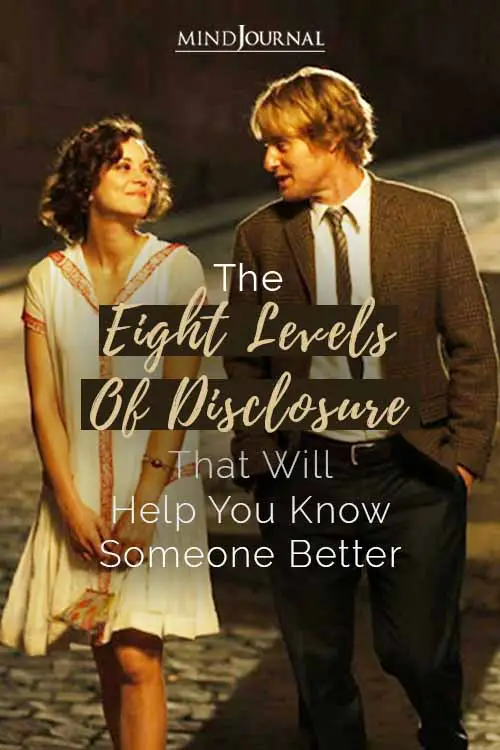
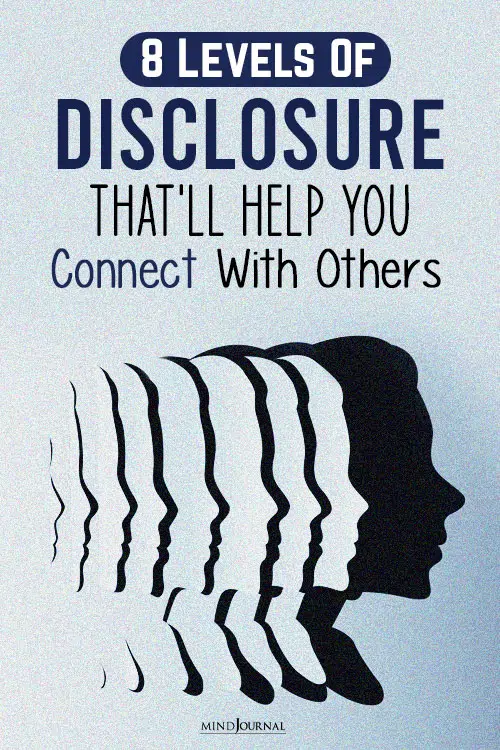
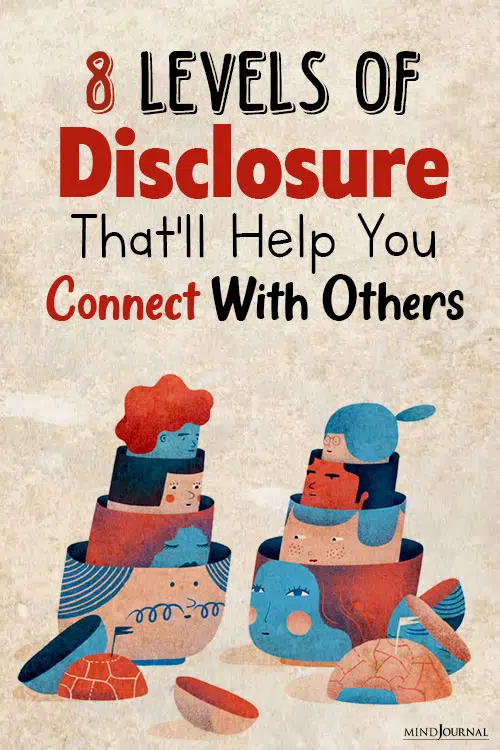
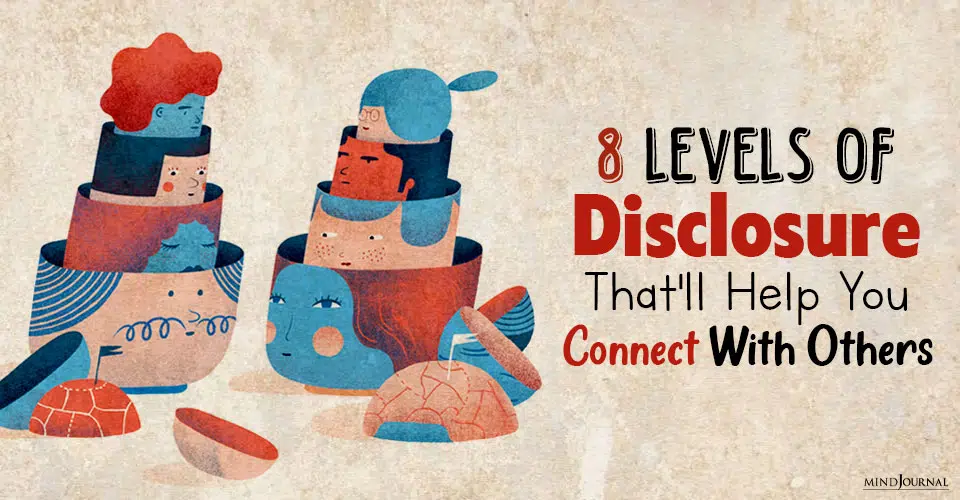
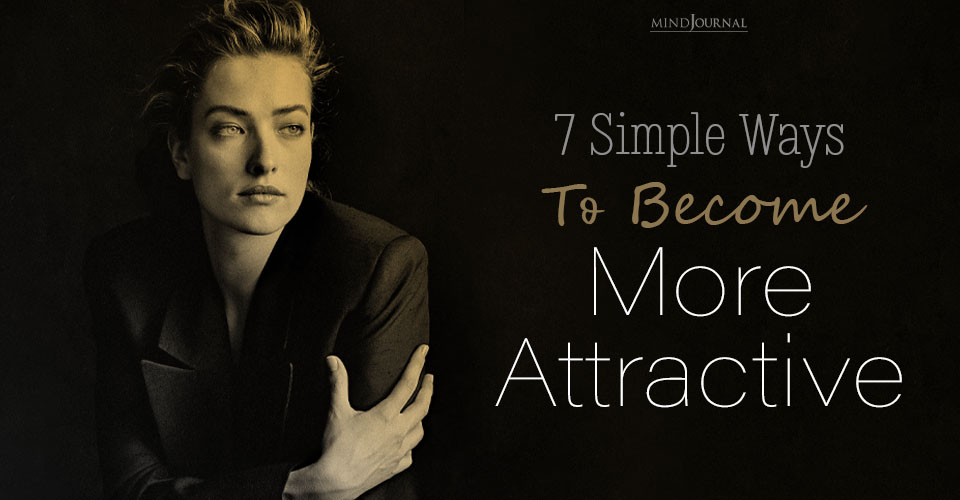

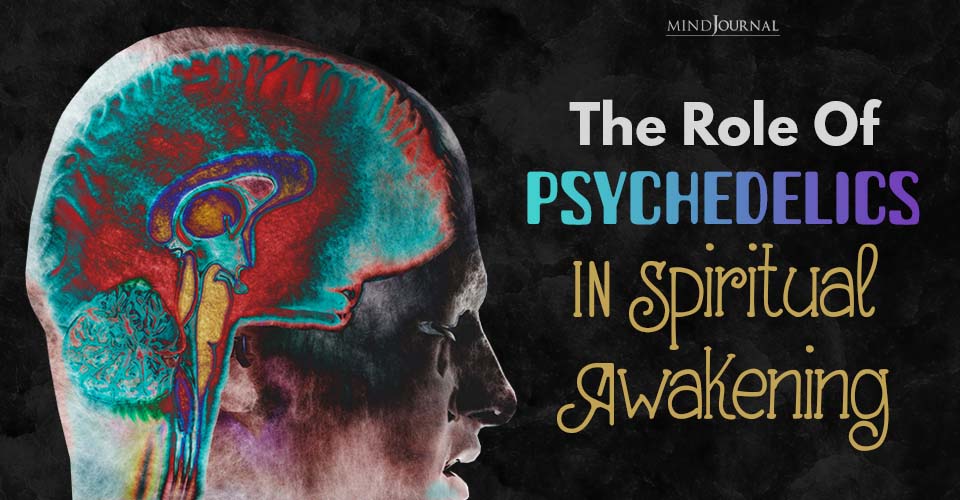


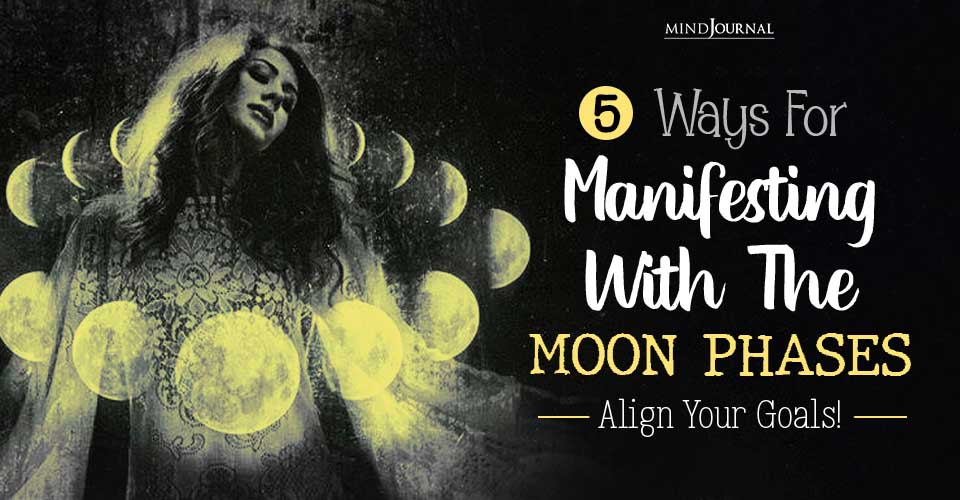
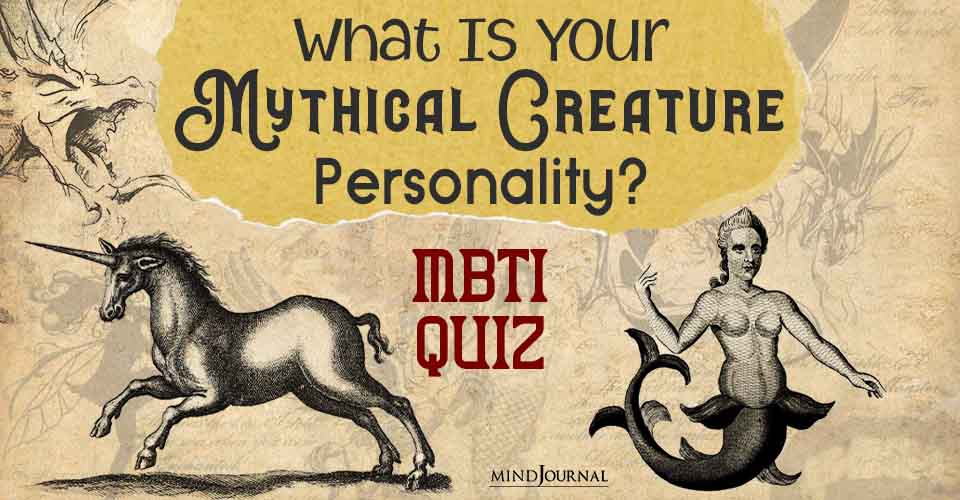
Leave a Reply
You must be logged in to post a comment.